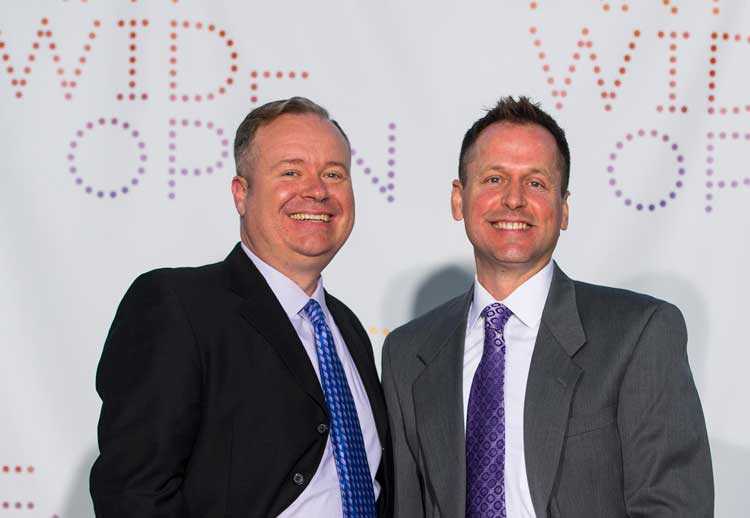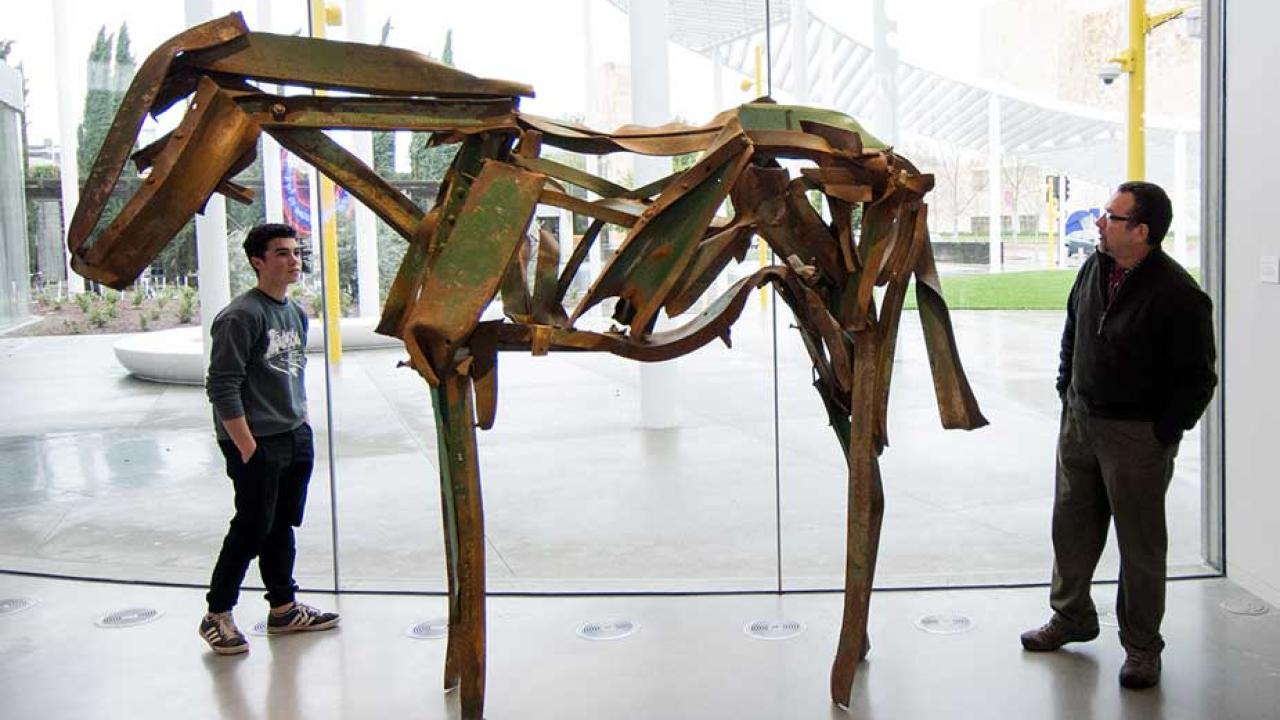There’s something about working at a university …
- Something about studying what you love, or assisting others in their studies …
- Something about being exposed to everything under the sun, from astronomy to zoology …
- Something about being exposed to college life, from athletics to the Buzzz.

So many things to like, so much to absorb … so much to consider worthy of our financial support. Every contribution helps our university and our students flourish, but also shows external donors that we — the staff and faculty who work here — believe in what we do, that there is value in what we do.
“It is important to be able to say that to donors,” said Shaun Keister, vice chancellor, Office of Development and Alumni Relations. “If we can go to someone who can give us a million dollars, and we can say half of our faculty and staff give, that is powerful in securing a major gift.”
He isn’t talking about “how much” we contribute, but “how many” of us contribute — the percentage of faculty and staff who give, a number that stood at about 7 percent last year.
He’d like to see that number go higher, especially as UC Davis moves into its second comprehensive campaign. It began July 1 with the “quiet phase,” the length of which is undetermined at this time.
‘The next Wayne Thiebaud’
In considering where to give, Keister suggests: “Find your interest, find your passion” — look around at all the things you love about this university.
“And talk to people,” said Walter Allen, business analyst in Client Services, Information and Educational Technology at UC Davis. “Figure out what the campus needs. … What can we do to give back to the campus, what can we do to help students?
“And then ask, ‘Why isn’t this happening?’ … Because no one has put it into action, or had the means.”
That leads us to two recent gifts made by husband-and-husband Keister and Allen, one of those gifts to the new Jan Shrem and Maria Manetti Shrem Museum of Art. “We were obviously attracted to the museum in general, because it’s an exciting part of our campus now, and we love art.” Keister said.
Then they learned the museum director hoped to restart a program that had ended years earlier — a program whereby each year the university bought a piece of art from a graduate of the Master of Fine Arts program. Keister and Allen thought, “This is perfect, because this fits our passion, we wanted to help students, and the two came together.”
Giving to UC Davis
Office of Development
- Website: give.ucdavis.edu
- Telephone: (530) 754-GIVE (4438)
- Or contact a development officer in your unit.
UC Davis Give Day 2017
- Website: giveday.ucdavis.edu
- Give Day will start at noon Friday, April 21, and continue until 5 p.m. Saturday, April 22 (Picnic Day) — with people invited to give online or by text message.
- Sign up to be a Give Day Ambassador.
- Read Dateline UC Davis story.
“That piece would become part of the permanent collection at UC Davis,” Keister said, “and, of course, the artist has sold perhaps their first piece of art, and, hopefully some day, one of them will become the next Wayne Thiebaud.”
The Keister and Allen Art Purchase Prize will add one work a year to the university’s collection, from graduating artists, starting this spring. “We don’t want this program to stop again, which is why we established an endowment, so it will continue in perpetuity,” Allen said.
Honoring a legacy
In considering a gift, you might also want to consider honoring another person’s passion. “I don’t think people often think of that as an option for gifting,” Keister said.
He and Allen recently made a gift in honor of Keister’s late grandmother, the Mary Maneval Endowed Scholarship in Sustainable Agriculture. “We care about sustainable ag so we see this gift as the perfect way to honor the legacy of someone who practiced sustainable agriculture long before it had a name, and to honor the woman who had a profound impact on my life.,” said Keister, who practically grew up on his grandmother’s farm in Snyder County, Pennsylvania.
Allen and Keister are sharing their stories of gifting to show what motivated their donations, and, hopefully, to prompt others on campus to think about their own motivations, to show a couple of paths toward choosing what to support, from among the thousands of things that we do here.
“The real call here is we hope every member of the campus community will think about something they care about or are passionate about, and support it at whatever level they can afford, or whatever level that they’re comfortable with,” Keister said. “Because for many people on campus, it won’t be an endowment; it will be a $100 gift to support a project they care about or a department they love, and for others it might be more.”
“We simply want to encourage people to support the things they care about and be part of our second comprehensive fundraising campaign.”
